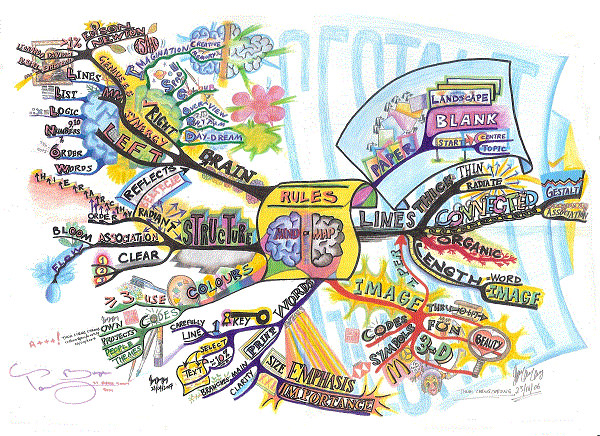Do not know what to do and what not to do for a mobile app? How to make the choices that are best for you? You want to create a quality application, but you do not know how to define your project? Of course, there is no ready-made answer, each project has its own specificities. But there are important points commonly to each application.
These points are part of the keys to success for your app. This does not mean that they will lead you directly to success, but rather that you will need them to achieve success. Imagining an application project is not a simple thing. That’s why we decided to give you some tips to help you to choose best Mobile App development company.
Usually, application developers try to implement a maximum of features in the application. This is a very common mistake that can call into question the success of your application.
Top 10 Tools for the Mobile App Development
1- React Native
React Native is a widely-used mobile app development platform that is understood for its ability to facilitate the simultaneous building of apps for both Android and iOS platforms. Unlike conventional techniques that need separate programming languages like Objective-C for iOS and Java for Android. React Native overpowers this limitation by utilizing a single codebase. By leveraging this benefit, developers can efficiently create cross-platform applications without compromising user experience and functionality.
Since its start in 2015, React Native, established by Facebook (Meta), has grown tremendously and solidified its position as the ultimate mobile app development framework.
It has garnered massive popularity among proficient software development companies, becoming a go-to choice for creating high-quality mobile apps. Major industry giants like Meta, Instagram, and Uber have adopted React Native, further establishing its authenticity and credibility as a top-tier tool in the mobile app development geography.
Benefits
- Reusability of State Management, React Hooks, and Component Logic
- Code Reusability for iOS and Android:
- Seamless Third-Party Integration:
- Hot and Live Reloading:
- UI-Focused Development
2- jQuery Mobile
jQuery Mobile is a UI system made on the jQuery framework, designed particularly for mobile apps. It uses HTML5 to provide a broad range of UI elements and features, creating it a perfect choice for developing modern web apps for mobile devices and tablets.
By leveraging jQuery Mobile, developers can enhance web pages by incorporating touch-friendly form inputs, optimizing page loading speed, and ensuring compatibility with various devices. The efficiency of jQuery Mobile can be attributed to its lightweight codebase, which allows flexible designs and contributes to a slippery user experience.
Benefits
- jQuery Mobile offers exceptional support for a wide range of devices, including high-end and less capable ones that may not support JavaScript.
- With jQuery Mobile, developers can take complete control over application styling, leverage cross-platform widgets, and utilize Themeroller to elevate UI design and theming to a new level.
- Apps developed with jQuery Mobile are accessible across various devices and browsers.
3- Unity
Unity has achieved across-the-board recognition as a prime game development tool. It is appropriated by millions of app developers who use its game engine to make captivating gaming apps across considerable platforms, such as Android, iOS, and Windows. Unity’s favor can be attributed to its user-friendly interface (UI), extensive feature set, and efficient workflow, making it a top preference for Android game development.
Although Unity is especially well-known for game development, it can also effectively make use of non-gaming apps for different purposes, including business and utility applications. Its versatility extends beyond gaming, authorizing app developers to leverage its abilities for an expansive range of app development projects.
Benefits
- Efficient and streamlined development support that accelerates the app development process
- A robust community comprising developers from industry giants like Disney, NASA, Ubisoft, Microsoft, Electronic Arts, and Warner Bros.
- Simplified coding complexities through C#-based development
4- Qt Creator
Qt Creator is a cross-platform Integrated Development Environment (IDE) that provides developers with various tools to efficiently tackle different tasks. It encompasses a source code editor, a testing tool, an integrated GUI layout, and a visual debugging tool for seamless app monitoring.
The foundation of Qt lies in a combination of C++, JavaScript, and QML (Qt Modeling Language), with C++ forming the predominant part. What sets Qt apart is its unique approach of employing a custom rendering engine, which allows for reusing the app’s logic and user interface (UI) elements. It results in a streamlined development process and facilitates the creation of visually appealing applications.
Benefits
- Seamless Integration with External SDKs:
- Declarative Syntax for Flexible UI Composition:
- Simple Property Binding Approach:
- Extensive Feature Set:
- Native API Interaction:
- Efficient Testing with Qt Quick Test Framework
5- PhoneGap
PhoneGap is an open source and free mobile app development framework also comes under the category of cross-platform app development. It is used to build a single app which furthers works with numbers of platforms. To make the development faster and easier, this tool integrates various libraries with the existing code and functions. This tool also offers plug-in architecture to extend the tool’s functionality further.
PhoneGap is a suitable option for mobile applications that don’t make significant use of the phone’s native properties. Instead of it, it also maintains software kit for every platform developed by the developers. One of the biggest benefits of this tool is to provide a wide range of plug-ins to the programmers to utilize web skills.
Furthermore, it enables developers to build Android and iOS apps and supporting their respective platforms without using Local Software development kit in the cloud. It means non-Mac users can also develop an iOS application using Apache PhoneGap. Now, it is acquired by the Adobe Foundation.
Benefits
- It also enables creating hybrid apps utilizing popular web technologies such as HTML5, CSS3, and JavaScript.
- It follows plug-able architecture, it means you can access APIs and extended its modular form.
6- Sencha Touch
Sencha Touch is the leading cross-platform mobile app development tool. It can be utilized to develop efficient applications, making utilization of hardware acceleration techniques.
On Sencha, top quality applications can be developed with well-tested, integrated UI components and libraries. It’s even fit for building large business apps and keeping them up easily. Besides, this framework enables developers to develop cutting-edge applications.
Benefits
- It provides built-in-native-looking themes for all the major platforms.
- It also maintenances PhoneGap and Cordova integration for native API access and packaging.
- This tool supports all the platforms such as Android, iOS, BlackBerry, Windows Phone.
7- Ionic
Ionic, an open-source SDK, is extensively used to develop hybrid applications using CSS, HTML5, and technologies similar to SASS. One of the significant advantages of building mobile apps with Ionic is the ability to deliver release updates to users directly.
Ionic facilitates the methodology of automating app delivery, making it suitable for developers to deploy advanced features and bug fixes quickly. This streamlined app development process especially improves the speed and efficiency of the app development process, assuring a seamless user experience.
Benefits
- Seamless App Updates and Bug Fixes
- Workflow Automation
- Cloud-based Native Binary Creation
- Centralized Dashboard with Live Activity Feeds
- Industry-specific Defaults and Pre-built Workflows
8- Titanium
It is also known as Appcelerator. As its name indicates, this tool is mainly used to speed up the app development process as it used fewer lines of code. Appcelerator is one of the best mobile app development tools. It also supports in developing native applications by deploying a single JavaScript code base.
It also gives your web content in a native app, assuring your code isn’t wrapped around a web container, unlike a few other solutions. Pacific features across the numbers of devices to enhance the existing skills of the developers to create amazing mobile applications. It also provides Backend-as-a-service (BaaS) and value analytics etc. add-on features.
It utilizes JavaScript, Titanium’s SDK to make native iOS and Android applications while reusing somewhere in the range of 60% to 90% of a similar code for all the applications you make and saves a lot of time.
Benefits
- Appcelerator has pre-built connectors available for MS Azure, MS SQL, Salesforce, MongoDB.
- It also gives tools for rapid application development. A prototype can be made with lesser time and effort to estimate the user interaction with UI.
9- Xamarin
It is mainly used to develop native apps for the specific mobile platforms. Xamarin allows you to use the existing data access and business logic layers across multiple platforms. It is widely used to build an app for iOS, windows and Android App development.
You can do anything in C# with Xamarin so that you can also do in Swift Objective-C, or Java unlike what commonly believed. Moreover, it allows you to use IDE, language, and APIs all over the place. Git integration is assembled straight into the Xamarin Studio.
Apps developed with the platform can be verified on various devices over the cloud service of the organization. Plus, Xamarin University offers interface development tool and online classes for Xamarin through its program. In recent times, Xamarin comes into partnership agreements with Xoriant, IBM and Microsoft.
Benefits
- It offers smarter ways to build the native UI.
- It also offers device-specific features along with time and effort.
10- Flutter
Flutter is a free and open source Google’s mobile UI framework which is used to create high-quality native interfaces for iOS and Android in less amount of time. Flutter is used wide world by developer and organizations.
Flutter helps to build an interface for its users that react smoothly and work efficiently in your app while dropping the volume of code requisite to coordinate and update your app’s view. It’s special feature “hot reload” helps rapidly and easily experiment, create UI, add features and remove errors.
It is capable of sub-second reload times, without losing state, on emulators, simulators, and hardware for iOS and Android. It is a new and one of the creative cross-platform framework. It requires half of the code to develop an app than other platforms. Also, it is a rich set of platform, layout and foundation widgets. Flutter has the tools and libraries to help you easily bring your ideas to life on iOS and Android.
Benefits
- Develop for iOS and Android from a single code base.
- Fix crashes and continue debugging from where the app left off
App Yourself: With App Yourself you can quickly and easily create customized smartphone progressive web apps and native apps for Android and iOS. The intuitive app tool allows you to create your own app in no time.
A large variety of building blocks make it possible to create a unique app, including logos, texts, images, icons, and custom colors. App Yourself is specifically designed to help small and medium-sized businesses to attract mobile customers, inspire existing ones, strengthen the brand awareness and increase sales.
Benefits
- App yourself has some good options for app makers who want a complete pack in a single platform.
- The editor is well-designed and user-friendly.
Why Choose RichestSoft for Mobile App Development?
When it comes to app development, selecting the right mobile app development associate is prime for the success of your project. RichestSoft is a top software development company delivering exceptional mobile app development services.
Here are multiple reasons why you should consider selecting RichestSoft for your mobile app development requirements:
- Expertise and Experience
- Customized Solutions
- Agile Development Methodology
- User-Centric Design
- Quality Assurance
- Post-Development Support
- Affordable Pricing
- Client Satisfaction
FAQs
Q1: What are the essential tools for mobile app development?
Ans: A combination of tools is needed to make developing mobile apps more convenient. A version control system like Git, design tools like Sketch, and a testing framework like Appium, XCTest, or Adobe XD for designing UI/UX mockups are all necessary. They also possess incorporated development environments (IDE) like Android Studio or Xcode.
Q2: What is the role of an integrated development environment (IDE) in mobile app development?
Ans: Planning, Code writing, testing, and debugging can all be done utilizing an IDE software program. Mobile app development needs to employ IDEs like Xcode for iOS apps and Android Studio for Android apps. They provide tools to effectively create and deploy mobile apps, such as code emulators, editors, and debuggers.
Q3: What are some popular cross-platform mobile app development tools?
Ans: Appreciations to cross-platform development tools, where app developers can write a single code once and deploy it across multiple platforms. React Native, Flutter, Xamarin, Ionic, and PhoneGap are famous cross-platform tools. These tools authorize app developers to create Android apps and build iOS using a single codebase while balancing code reuse and native performance.
Q4: What are the benefits of using a testing framework for mobile app development?
Ans: A testing framework is needed to ensure the quality and trustworthiness of the mobile app. It authorizes app developers to automate testing processes such as UI testing, integration testing, and unit testing. Early bug and problem detection are possible by testing frameworks like XCTest, Appium, or Espresso, which show more convincing and durable mobile apps.
Q5: How can design tools contribute to mobile app development?
Ans: Design tools are needed to create an aesthetically pleasing and user-friendly mobile app. Designers can produce UI/UX mockups, and prototypes, wireframes using tools like Figma, Sketch, or Adobe XD. These tools make it more comfortable for designers and app developers to work together, guaranteeing a seamless design-to-development workflow and improving the user experience of the app as a whole.
Conclusion
The mobile tool development is beneficial for the specialists and beginners both to include a new functionality easily for the consistent user experience. These tools are helpful to create fast apps based on the existing templates. There are more app development tools in the store such as Xojo, MonoCross, Appmobi, Corona etc. according to the requirement of the target audience. If you are not confirmable building one for yourself, you can consider outsourcing the job to a best mobile app development company.






Leave a Reply